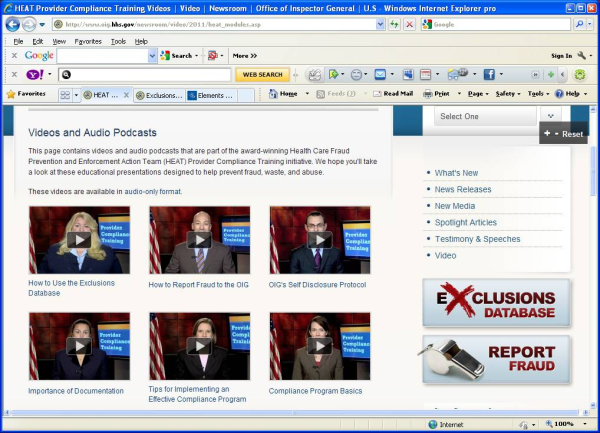In the first two installments of this blog post about internet marketing for physicians, or inbound marketing as it’s called (SEO & Blogs, Social Media), we discussed the basics surrounding social media—Facebook, Twitter, LinkedIn and Google+—and the importance of blogging and social media engagement in boosting the selling power of your website. We also discussed Search Engine Optimization (SEO) and the importance of having your website optimized so you rank on the first page of search results for specific keywords designed to attract your ideal patient.
Medical Billing Blog
Introduction To Internet Marketing For Physicians (Part 3)
Physicians Beware: Minors Have Special Rights for HIPAA Compliance
By Ralph Sitler III, JD--As all medical providers know, an extensive knowledge of HIPAA and its various regulations is key to a successful and compliant practice. Maintaining confidentiality of your patients and their health information should always be foremost in your thoughts when you are running your practice. However, some areas of HIPAA can prove to be confusing. One of these areas concerns the confidentiality provisions for minors and the ability of their parents to access their protected health information. This article will give an overview of applicable provisions to help clarify this topic and help keep your practice compliant.
Physicians May Be Forced To Retain Medical Billing Records For 10 Years
When it comes to retaining medical billing records, current guidelines require that records be retained for a period of four years—the “lookback” period during which the Centers for Medicare and Medicaid Services (CMS) has the right to amend payments made to physicians for whatever reason is deemed appropriate. However, CMS has proposed changing the current four year lookback period to a ten year lookback period—and retaining the right to conduct takebacks for that long, as well. The Proposed Rule was posted by CMS in the Federal Register on February 16, 2012. The proposed 10-year lookback period would be consistent with the False Claims Act statute of limitations under a provision of the Affordable Care Act. The effect of this change in the statute of limitations for taking back funds previously paid to providers is also consistent with the aggressive stance the OIG is taking toward healthcare fraud.
Introduction to Internet Marketing for Physicians (Part 2)
In the last installment of this blog article, we covered some of the basic components of an internet marketing program for physicians, such as SEO, Blogs, Organic Search and Long-tail Keywords. In this installment, we will discuss Social Media sites and their importance to your inbound marketing plan.
Tips For Use Of Modifier 58 and Modifier 78 In Medical Billing
By Christine Moore, CPC, CGSC--Even though Modifier 58 and Modifier 78 have similar meaning and wording, there are a few tips that will help in choosing the correct global period modifier when billing claims.
Introduction To Internet Marketing For Physicians
You have probably heard about internet marketing for physicians in one form or another, whether it’s all the talk about social media--Facebook, Google+, Twitter, LinkedIn and YouTube, or whether it’s all the talk about SEO, Organic Search, Landing Pages, Conversions, and Blogs.
Volunteering For A Pay Cut? A Billing Service Can Get You A Raise!
It seems that no one would volunteer for a pay cut, but some providers are doing just that. Physicians are fighting hard to repeal the government’s 27% SGR reduction, but many in private practice are voluntarily accepting pay cuts anyway. How can this be? The AMA states that many private practices using in-house billers leave an estimated 10%-15% of the practice’s revenue uncollected--either through a lack of billing education or unmotivated employees. And the amount of money that goes uncollected can be staggering.
Compliance plans are useful and serve a purpose. The primary reason you need a compliance plan is to prevent mistakes from happening. It’s nothing more than guidelines for your staff to follow to ensure that everyone abides by existing laws and regulations. Aside from the fact that current guidelines require all providers to have a compliance plan, the self monitoring instigated by having a compliance plan helps prevent errors—and that can help prevent government audits. And we want to prevent government audits because they are usually time consuming and expensive.
On Friday, February 17, 2012, the House and Senate both passed this measure to freeze current Medicare Physician Pay Rates through the beginning of 2013, avoiding a 27.4% pay cut that was slated to hit providers on March 1, 2012. Nonetheless, pay rates may still be cut as much as 32% at the beginning of 2013. Medical Billing Resources will continue to monitor the issue and will post about any further important developments.
Health and Human Services Secretary Kathleen G. Sebelius today announced plans to postpone implementation of International Classification of Diseases, 10th Edition Diagnosis and Procedure Codes (ICD-10) by certain health care entities.




















